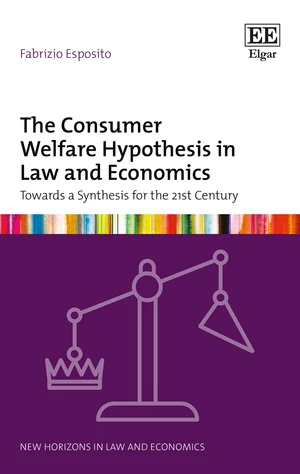The Consumer Welfare Hypothesis in Law and Economics is a compelling account of market relations with firm roots in economic theory and legal practice. This incisive book challenges the mainstream view that allocative efficiency is about total welfare maximisation. Instead, it argues for the consumer welfare hypothesis, in which allocating resources efficiently means maximising consumer welfare, and demonstrates that legal structures such as antitrust and consumer law are in reality designed and practised with this goal in mind.
Price history
Dec 1, 2022
€34.24

